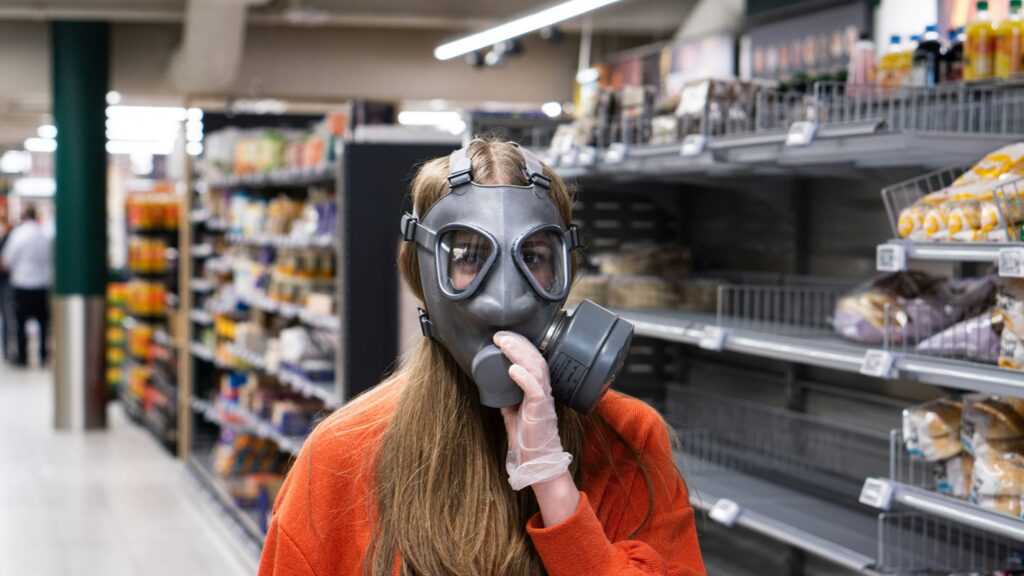On Monday, seed oils are poison. On Tuesday, plastic containers contaminate
your food and your body forever. On Wednesday, you need to change your entire
cookware collection because it is killing you. On Thursday, you could be suffering
from mould illness. By the end of the business week, you’re exhausted, stressed,
paranoid, and health-anxious.
Yes, all the issues mentioned above are potential causes for concern, and it is
important to explore and investigate them if they are causing symptoms. Staying
on top of your health is a priority because, yes, health is wealth.
But what good does worrying about every little thing do to your body and your
mind? How are the so-called “health coaches” helpful when they bombard you
with potential risks to your health with the great help of sensational and cryptic
videos clickbaiting “I cured my [insert trendy condition] doing these 7 things” or
“5 things you’re doing that are secretly KILLING YOU” – only selling you their
umpteenth course full of nothing?
When we go down the rabbit hole of toxins and unhealthy environmental
emissions, it is easy to get caught up in all the changes we need to put in place to
simply survive, let alone thrive. Sometimes, the only reasonable alternative seems
to be leaving the city to live in the bush… but even then, tick bites carrying Lyme
disease and yummy-looking-but-deadly mushrooms are there to threaten us all
the same!
Not to mention, the financial cost of replacing all your cookware and containers
and moving house to prevent mould exposure as well as the emotional burden of
fearing all aspects of the modern world and isolating yourself from family and
friends is extremely detrimental – potentially more than what our body can take.
The diagnosis is: forced-fed cyberchondria
The term cyberchondria was coined in the mid-90s and comes from “cyber”,
meaning online, and “hypochondriasis”, meaning “extreme health anxiety.” It is
defined as the “abnormal behavior in which people excessively do an online
health-related search.” You know, those late-night Google searches following
some random and unknown symptom, that often leave us more distressed than
reassured.
Nowadays, we don’t always choose to do those searches, because social media
plaster them everywhere for us to consume at an alarmingly rapid rate. Open
Instagram and learn about the latest condition you might be suffering from or the
tale-tell symptoms of whatever sinister illness your GP has never heard of (which
makes it even harder to properly look into and test for). This cyberchondria is not
created by our own doing but is forced-fed to us every day by random people
who decided to “research” a topic and cherry-pick the information they wanted to
share.
The problem here, as often, is the lack of individualised care and assessment. As
much as an Instagram post or a TikTok video can trigger some interesting
thoughts about your symptoms or a condition you are suffering from, nothing can
replace the tailored care that a practitioner can offer.
“So what do I do?”
If you find yourself anxious about your health, the first thing to do is to unplug and
go back to the basics: good nutrition, time in nature, breathwork, and connection.
Seeking help from practitioners who will recognise your health-awareness and
concerns can also be of help, if you are going to believe them.
A few herbs can help relax thanks to their anxiolytic properties: lavender,
chamomile, passionflower, or ashwagandha. On the more energetic side of things,
reach for Rescue Remedy by Bach Flower Essences. a blend of five flower essences
designed to help alleviate stress, anxiety, and overwhelm in moments of crisis or
emotional distress.
Should you like to be reassured and supported through your health journey, the
team at Resolve my Health offers non-invasive tests for toxins through the palms
of your hands. So you can work with facts about your health, not your anxiety.
If you’d like to book an appointment, feel free to e-mail us at
reception@resolvemyhealth.com.au or call us on 07 5525 2211.





